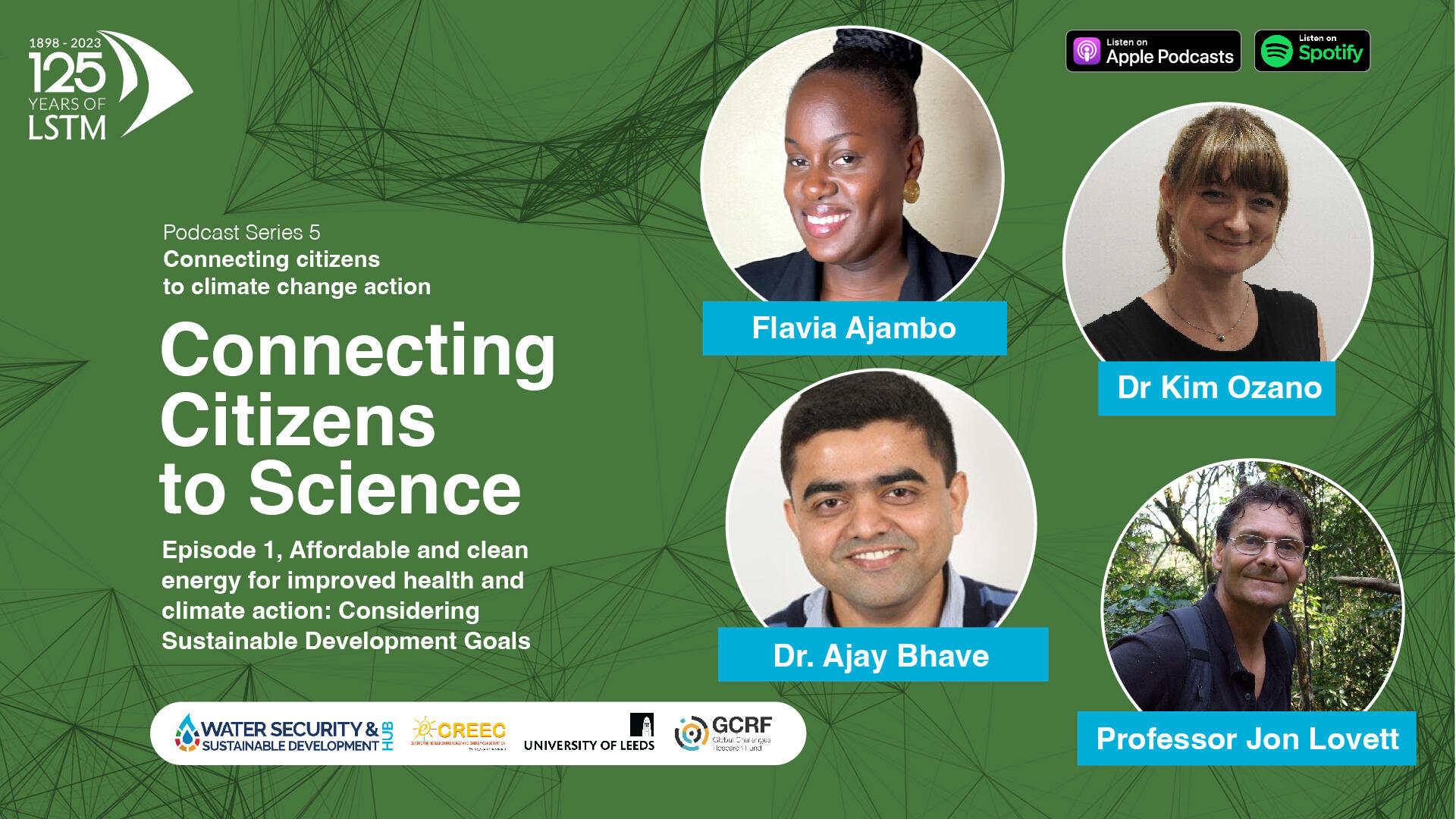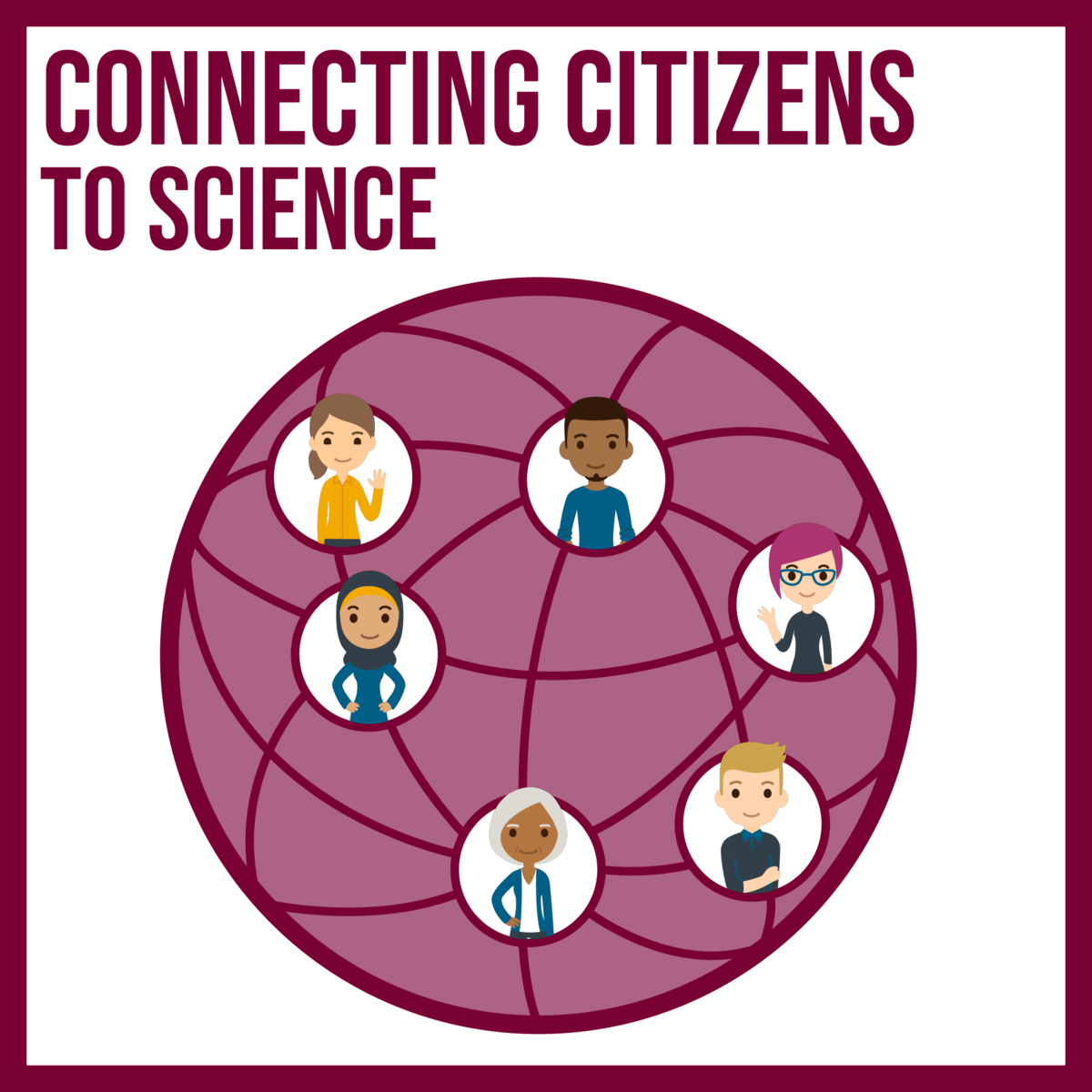
Sustainable Development Goal (SDG) 13 states that we need to “Take urgent action to combat climate change and its impacts”. The consideration of energy is a central focus for climate change experts as it is responsible for “nearly three-quarters of global emissions”, with energy consumption being one of the biggest sources of human-caused greenhouse gas emissions. SDG7 calls for “affordable, reliable, sustainable and modern energy for all” by 2030. Its core target includes: Ensure universal access to affordable, reliable and modern energy services. In this week's episode we will be focused on learning about renewable energy and the links between sustainable development goals such as health and poverty alleviation. We will hear from guests how they are working with people and communities to adapt to cleaner energy whilst considering the impacts on other SDG goals. Flavia Ajambo from CREEC and Professor Jon Lovett from Leeds University share:
- How the entertainment industry helps disseminate information around renewable energy in an interesting manner
- The design of microgrids that supply multiple renewable energy sources to orphanages in Uganda.
- How new energy technologies and innovations developed in a lab are transferred to communities in a sustainable way
- The importance of capacity strengthening and knowledge dissemination such as policy briefs, massive online open courses, and movies!
Our co-host for this series
Dr. Ajay Bhave
Core Research Fellow - Water Security and Sustainable Development Hub, Newcastle University
I am an interdisciplinary environmental scientist who uses methods from different disciplines to explore how to identify and prioritise actions and plans for adapting to a changing climate. I use scenarios and decision making under uncertainty approaches to co-produce knowledge with wide-ranging stakeholders regarding potential futures and adaptation options. Currently, he collaborates with researchers and stakeholders in Malawi, India, Malaysia, Colombia and Ethiopia to explore the diverse decision contexts, contextual priorities, climate change risks, and adaptation options. After receiving the Jawaharlal Nehru Outstanding Doctoral Thesis Award from the Indian Council of Agricultural Research, he has worked at the Grantham Research Institute on Climate Change and the Environment, London School of Economics and Political Science, and the University of Leeds.
Profile: https://www.ncl.ac.uk/engineering/staff/profile/ajaybhave.html
Publications: https://www.scopus.com/authid/detail.uri?authorId=55584569800
Twitter: @ajay_bhave
Flavia Ajambo is a Ugandan communication expert that has for 9years worked closely with renewable energy experts to influence the adoption of renewable energy technologies. On identifying the different patterns on how people absorb information and how it influences their adoption of clean energy, Flavia has worked closely with industry sector players to encourage and develop content packaged into movies, long foam content on YouTube, carousels, tv and radio drama series. These have demonstrated how renewable energy can be utilized and it’s benefits and has helped to drive impact towards the adoption and optimum utilization of renewable energy technologies.
Professor Jon Lovett is Chair of Global Challenges in the School of Geography at the University of Leeds. He started working with engineers on renewable energy whilst leading the Technology and Sustainable Development group at the University of Twente in the Netherlands. This work led to collaborations on energy and Sustainable Development Goal 7 in Uganda, Tanzania, Congo Brazzaville, Nepal, Indonesia and Nepal. On moving from Twente to Leeds he developed a project on ‘Energy Gardens’ in Nepal funded by the Economic and Social Research Council. This then led to a series of projects with the partners in Africa on capacity building, micro-grids and biogas with support from the Royal Society, Engineering and Physical Science Research Council and Biotechnology and Biological Sciences Research Council.
Massive open online course on bioenergy with CREEC:
https://www.futurelearn.com/courses/renewable-energy-achieving-sustainability-through-bioenergy
Kampala TV series Facebook page: https://www.facebook.com/Kampalatvseries

This is a podcast in the series: Connecting Citizens to Science, which focuses on health research based on equitable partnerships between researchers and communities.